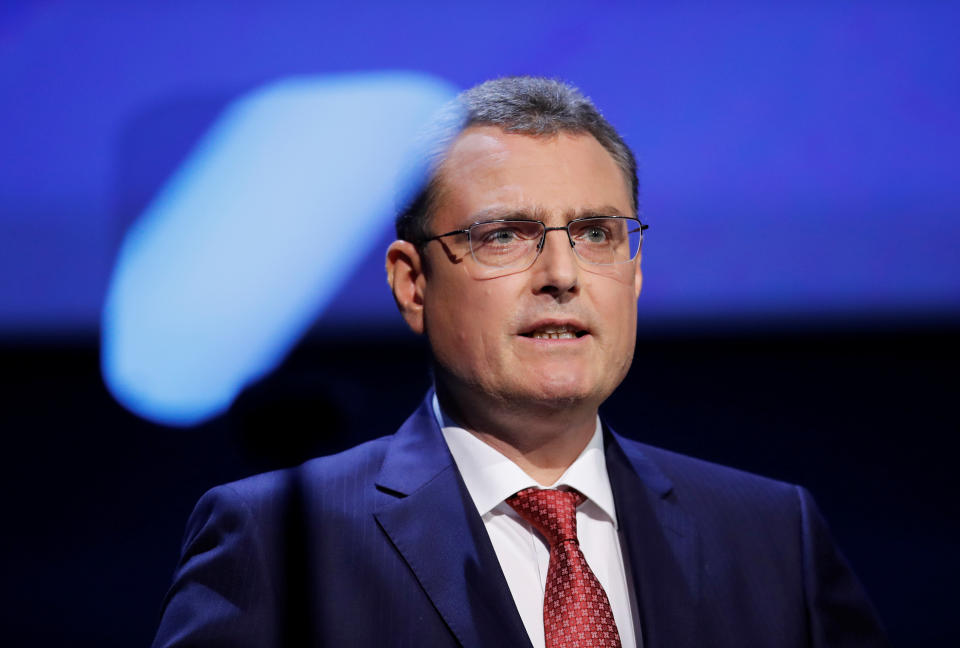Switzerland Is Mulling A Radical Plan To Rip Power Away From Big Banks

What’s happening?
Switzerland, a country famed for its financial sector, is holding a vote on June 10 on whether to radically revise its monetary and banking system.
The proposal — called Vollgeld (sovereign money) — would change the way money is created and reshape the role of commercial banks.
What does it mean?
It basically boils down to the question “What is money, and who is allowed to create it?”
Few people are aware that most money is created by commercial banks as they make loans to people and businesses. For example, when someone borrows for a mortgage, the bank makes an electronic transfer to the property’s seller. The bank doesn’t need to have this cash in its reserves; it needs only a small fraction of it to meet regulations. Thus money is created electronically.
This concept of banks being able to lend money they don’t physically have is called fractional reserve banking and is very common in modern economies. It gives banks a lot of freedom to lend, but it also carries risks — as became evident in the 2008 financial crash. Banks melted down, and many, including Switzerland’s UBS, were saved by big bailouts of taxpayers’ money.

The proposal being considered in Switzerland would bar commercial banks from creating money. Instead, the country’s central bank, the Swiss National Bank, would be the only institution able to create notes, coins and electronic money.
The hope is that by putting the power to create money in the hands of a central bank rather than profit-driven commercial banks, it would be more likely that monetary decisions are made in the public interest.
Why are campaigners calling for it?
“The main thing we want to do is to make the banking system work how most people already believe it works,” said Emma Dawnay, a spokeswoman for the Vollgeld Initiative.
The Vollgeld Initiative, which came out of the nonprofit Monetäre Modernisierung (Modernizing Money), has spent the last four years working on the campaign and collected the 100,000 signatures needed under Swiss law to put the proposal to a vote.

Dawnay said that most people believe money in an electronic bank account is theirs. Although people have a claim on that money, it actually belongs to the bank. It’s not legal tender in the same way as notes or coins. If the bank goes under, absent some kind of insurance scheme, your money goes with it.
“At the moment, should a large bank go out of business without being saved by the government, then it would be absolutely dire,” she said. “It’s so unthinkable that the banks know the governments will save them. They know they are too big to fail.” Under a sovereign money system, she added, money would be safe because it is central bank money and won’t disappear in the case of a bankruptcy. This means that banks could go under without leading to the collapse of the whole financial system.
Advocates say the change would make Swiss money safer, curb reckless behavior by bankers and stop the endless boom and bust cycles that have dominated the financial sector.
“Private banks have shown that they cannot be trusted with the privilege of money creation,” said Fran Boait, the executive director of Positive Money, a U.K. organization that supports Vollgeld, “as their irresponsible lending has resulted in financial crises as well as a failure to invest in the real economy.”
Who’s against it?
Well, the bankers, obviously. As well as the Swiss government. Among the arguments against the change are that it would damage Switzerland’s international competitiveness and that it would undermine an economy that is currently pretty healthy.
The SNB, which would have a much wider role under the proposals, is not in favor. It’s worried that the new system would hurt people and businesses by making finance less available to them. SNB Chairman Thomas Jordan has said the switch would be a “dangerous experiment” that would greatly damage the economy.

Alessandro Bee, a UBS economist, told HuffPost that the switch “sounds very promising if you tell people we’re making the banking system safer ... but if you look a bit closer, there are a lot of problems with this proposal.” He said loans would likely become more expensive for homeowners as banks passed on the costs of replacing money to customers in the form of higher interest rates.
He pointed out that the SNB would be forced under the change to return to money supply targeting — trying to control the amount of money in the economy — something it did two decades ago, when the country saw high inflation and a housing collapse. “Why do you want to go back to a system which didn’t work back in the ’90s?” he asked.
UBS Group CEO Sergio Ermotti was a little blunter in his opposition to the proposal, saying in a recent earnings call, “I don’t expect the Swiss people to be suicidal and approve it.”
Has any other country done it?
No. There was a similar suggestion made by U.S. economists in the 1930s, in the wake of the Great Depression. Called the Chicago Plan, it advocated for banks to keep 100 percent reserves for all deposits. But its features were never adopted.
Will the proposal pass?
It’s unlikely. Polling shows that just over half of Swiss voters oppose the switch, with only about one-third supporting it. “Clearly it’s a big challenge,” Dawnay admitted. “But what’s been absolutely amazing is the amount of discussion there has been in the Swiss media ... Even if we don’t win, we have really started something. People now know how the system works.”
For more content and to be part of the “This New World” community, follow our Facebook page.
HuffPost’s “This New World” series is funded by Partners for a New Economy and the Kendeda Fund. All content is editorially independent, with no influence or input from the foundations. If you have an idea or tip for the editorial series, send an email to thisnewworld@huffpost.com
Love HuffPost? Become a founding member of HuffPost Plus today.
This article originally appeared on HuffPost.

